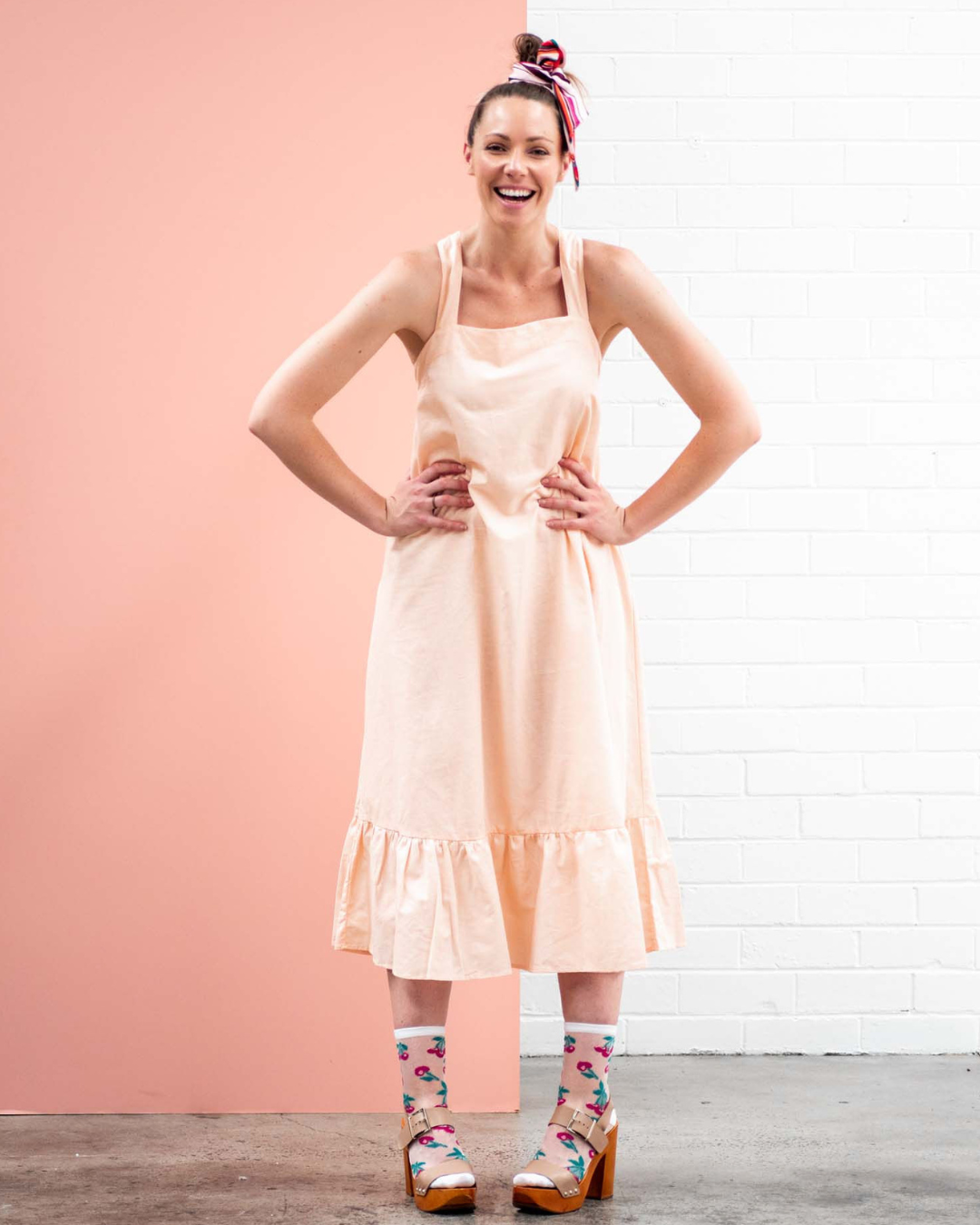The original post of this interview was shared on the Medley blog, read it here.
Claire and Head of Medley, Amber Hodgman caught up for a live discussion about responsible sourcing, running Medley and what it takes to be a sustainable force in the fashion and jewellery industry.
At Medley, we place a huge amount of emphasis on conscious consumerism. As we continue to improve on our supply chain transparency and efforts in sustainability, we sat down with ethical fashion expert, advisor, mentor and founder of The Fashion Advocate, Claire Goldsworthy to talk all things, circular fashion, longevity and sustainability.
Tell us about your history in the fashion industry and what initially drove your passion for sustainability and slow fashion?
I've worked in fashion my entire life! I started my first circular fashion label when I was 18 and I started my first fashion events and PR company when I was 22. Then I launched the country's first and largest exclusively Australian made online fashion store, The Dress Collective, and in 2014, I founded The Fashion Advocate. It started as a blog and grew to become the largest online store for ethical and sustainable Australian and New Zealand fashion. I've recently rebranded and relaunched, and now The Fashion Advocate is an online education platform and community for ethical, sustainable, circular and slow fashion brands. I work with independent labels to help build their businesses, and increase their sales and impact, because we need more purpose-driven labels in the industry. I also worked in a few corporate fashion roles in my 20s, and I've seen every side of the industry - good and bad. I've always been interested in sustainability but when I worked for one particular company in Melbourne and saw the costing sheets come in from an offshore supplier at $2.70 a piece, I knew the manufacturing wasn't ethical and I knew these women weren't earning a living wage. It cemented my direction - I wanted to create an ethical and sustainable industry for the people who work in it, the people who are often forgotten, and it's what I've worked towards since through my own businesses. Sustainability just seems natural to me too; it's in everything I do. We only have one planet, and we have to work with it, not against it, so looking after the environment is essential.
If there was one thing you could teach consumers to adopt in their shopping habits, what would it be?
Think about "The three M's" - where it's made, what it's made from and how much you're paying for it. It's a great rule to follow if you're new to slow fashion and it'll help you navigate the fast fashion world and avoid poor purchases. Look at the tag, if it's made in Bangladesh, it's probably not made in the best conditions. There's a reason companies choose to manufacture in developing countries and that's because labour is cheap and often unethical. Look at the tag and consider what it's made from too. Polyester is unsustainable and it's made from a non-renewable resource, petroleum, so it's also toxic to wear. Aim for natural and biodegradable fabrics. Lastly, consider how much you're paying for something. It's not always the way, but generally, you get what you pay for. If you're paying $10 for a t-shirt, it's likely it'll fall apart after one wash and you'll end up throwing it away. Invest in quality and invest in well made fashion and accessories.
What are some of your favourite slow fashion brands?
Elk for womenswear and Mister Bladin for menswear, they're launching soon and they've put a lot of time and effort into the conscious production process. I'm a big fan of little brands too, the ones not many people know about! COOP for handbags and Luna and Sun are beautiful too.
Which brands do you consider leaders in the slow fashion world, and what are they doing right?
When people think 'leaders' they often think big, and there are definitely a few big brands that are leading the way with innovation, circularity and responsible sourcing like Kit X, Outland Denim and Kowtow, but there are so many small labels that are using their fashion businesses as a force for good that deserve recognition too. They make-to-order, they produce small collections, they don't over-create, they don't go on sale, they use natural materials, they think long-term instead of being trend-based, and they spend time educating their customers on the importance of buying what you really need and investing in quality. I'm a big fan of Medley's commitment to sourcing too, jewellery often gets overlooked when it comes to ethics and sustainability but there's just as much need for change in jewellery as there is in fashion, and Amber has put the time into responsible sourcing which is so important. Fashion can't just look good, it needs to do good too!
What do you think is the biggest misconception in sustainable fashion?
That sustainability is just about fabrics. Ethics and sustainability go hand in hand, you can't have one without the other. Fashion that isn't sustainable, also isn't ethical, because it's not ethical to produce unsustainable fashion when it impacts us all. Ethical and sustainable fashion is symbiotic - it's not one or the other.
How do you ensure you are maintaining a sustainable lifestyle day to day?
I use a reusable water bottle, I don't buy fast fashion (and avoid polyester like the plague!), I switch everything off at the power point, I recycle, and I use my voice to educate and inspire others to do the same. There's power in numbers!
The original post was shared on the Medley blog, read it here.




